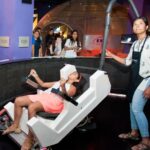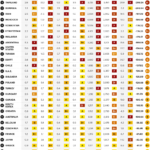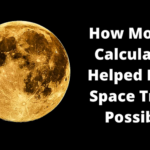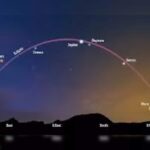Unleashing The Wonders Of Space Exploration KS3: Click To Embark On An Extraordinary Journey!
Exploring Space: A Journey through KS3
Introduction:
Space exploration has always been a captivating subject, fueling our curiosity about the universe beyond our planet. For students in Key Stage 3 (KS3), the study of space exploration opens up a whole new world of knowledge and possibilities. In this article, we will delve into the fascinating realm of space exploration KS3, discussing what it entails, who is involved, when and where it takes place, why it is important, and how it impacts our understanding of the universe.
2 Picture Gallery: Unleashing The Wonders Of Space Exploration KS3: Click To Embark On An Extraordinary Journey!
Body Paragraphs:

Image Source: teachwire.net
What is Space Exploration KS3?
Space exploration KS3 refers to the study of space, celestial bodies, and the technology and techniques used to explore them. It covers a wide range of topics, including the history of space exploration, the solar system, galaxies, and the search for extraterrestrial life. Students learn about the scientific principles behind space exploration, the engineering challenges involved in building spacecraft, and the impact of space exploration on our daily lives.
Who is Involved in Space Exploration KS3?

Image Source: cloudfront.net
Space exploration KS3 involves a diverse group of individuals and organizations. Scientists, engineers, astronauts, and researchers from around the world contribute to the field. Educational institutions, such as schools and universities, play a crucial role in providing students with the knowledge and skills needed to pursue careers in space exploration. Space agencies, like NASA and ESA, spearhead space missions and conduct groundbreaking research.
When and Where does Space Exploration KS3 Occur?
Space exploration KS3 takes place in classrooms, science labs, and observatories around the world. Students have the opportunity to engage in hands-on experiments, use telescopes to observe celestial bodies, and even participate in simulated space missions. They can also attend workshops and conferences where they can interact with professionals in the field. Additionally, space exploration KS3 is an ongoing field of study, with new discoveries and missions constantly shaping our understanding of space.
Why is Space Exploration KS3 Important?
Space exploration KS3 is important for several reasons. Firstly, it fosters scientific curiosity and encourages critical thinking among students. It allows them to develop problem-solving skills and understand complex scientific concepts. Secondly, space exploration provides valuable insights into our own planet. Studying the Earth from space helps us understand climate change, natural disasters, and the impact of human activities. Lastly, space exploration is crucial for technological advancements. Many everyday technologies, such as satellite communication and GPS, have their roots in space exploration.
How Does Space Exploration KS3 Impact Our Understanding of the Universe?
Space exploration KS3 expands our knowledge of the universe and helps us answer fundamental questions about our existence. By exploring other planets, moons, and asteroids, we gain insight into the formation and evolution of our solar system. Studying distant galaxies and cosmic phenomena allows us to understand the vastness and diversity of the universe. Moreover, space exploration enables us to search for signs of life beyond Earth, potentially unraveling the mysteries of extraterrestrial life.
Transition Paragraphs:
Now, let’s dive deeper into some frequently asked questions about space exploration KS3 and its related aspects.
FAQ: Frequently Asked Questions
Q: What are the different types of space exploration missions?
A: Space exploration missions can be classified into several types, such as robotic missions, crewed missions, observatory missions, and satellite missions. Each type serves a specific purpose, ranging from collecting data and conducting experiments to exploring distant worlds.
Q: What materials are spacecraft made of?
A: Spacecraft are typically made of lightweight yet durable materials, such as aluminum alloys and composites. These materials are chosen for their ability to withstand the harsh conditions of space, including extreme temperatures and radiation.
Q: What are the requirements to become an astronaut?
A: The requirements to become an astronaut vary depending on the space agency. Generally, candidates need a degree in a STEM field, excellent physical and mental health, and relevant experience in areas like piloting, engineering, or scientific research.
Illustration/Example Paragraphs:
One example of a space exploration mission that captivated the world was the Apollo 11 mission. In 1969, NASA’s Apollo 11 spacecraft successfully landed two astronauts, Neil Armstrong and Buzz Aldrin, on the moon. This historic event marked the first time humans set foot on another celestial body. The mission not only demonstrated the capabilities of human space exploration but also inspired generations of future astronauts and scientists.
Comparison/Contrast Paragraphs:
When comparing space exploration KS3 to other areas of study, such as biology or history, one key difference becomes apparent: the vastness and unknown nature of space. Unlike other subjects, space exploration KS3 constantly presents new challenges and discoveries. It requires students to think beyond the confines of our planet and contemplate the mysteries of the universe. It provides a unique perspective that ignites curiosity and pushes the boundaries of human knowledge.
Conclusion:
Space exploration KS3 offers students an exciting journey through the wonders of the universe. It fosters scientific curiosity, encourages critical thinking, and inspires future generations of scientists, engineers, and astronauts. By delving into the study of space, students gain a deeper understanding of our planet, our place in the universe, and the limitless possibilities that lie beyond. Space exploration KS3 is a captivating and essential field of study that expands our horizons and shapes our future.
Experience the thrill of space exploration KS3 and embark on a journey that will forever change your perspective on the universe.
This post topic: Constellation Guides



